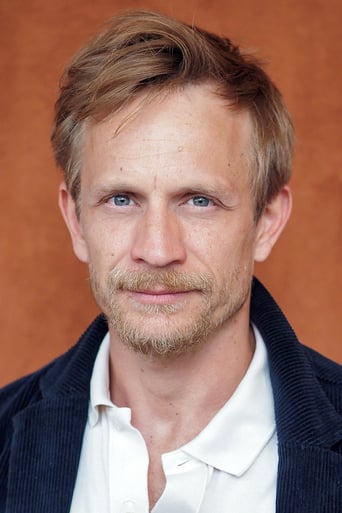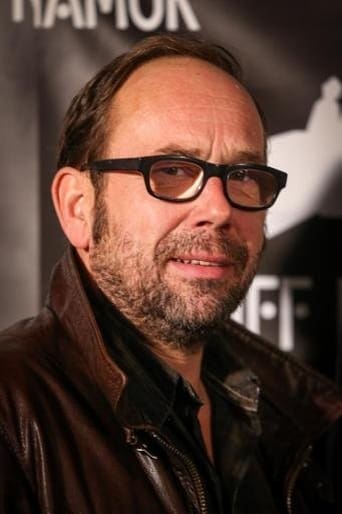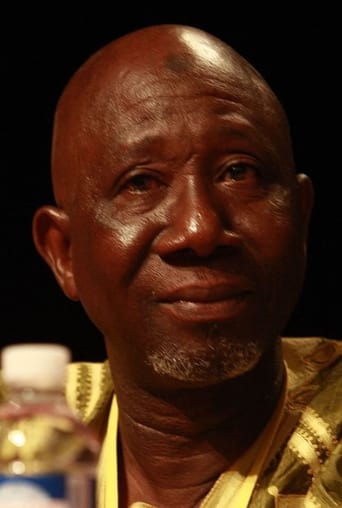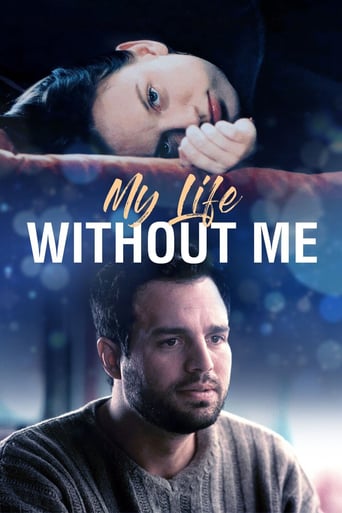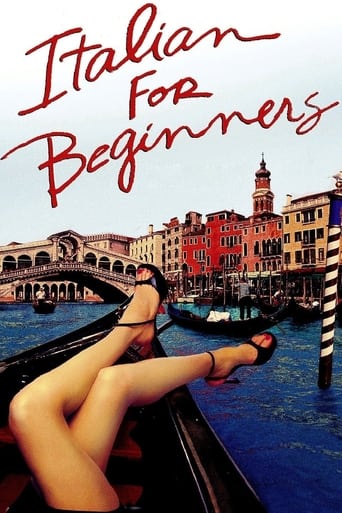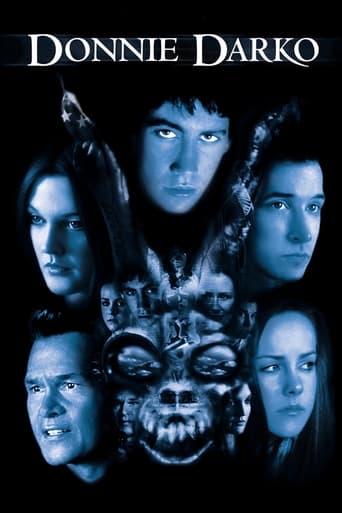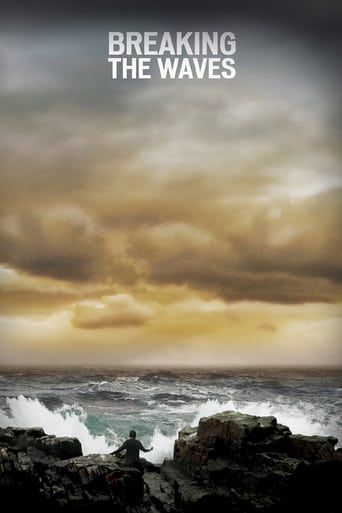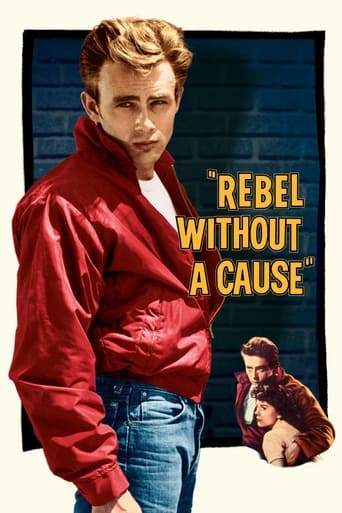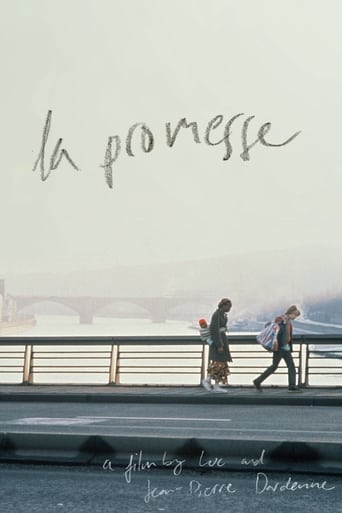
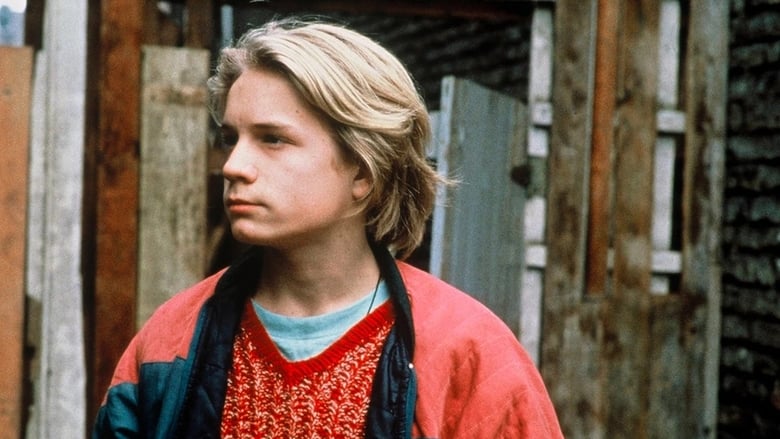
La Promesse (1996)
Igor, aged 15, and his father Roger deal in housing and peddling illicit labor in the outlying districts of Liege, Belgium. Scams, lies and swindling rule their lives. When one of his father’s illegal workers gets injured on the job and asks Igor to promise to take care of his wife and baby, Igor finds himself at a crossroad. He wants to keep the promise, but the price would be to betray his father.
Watch Trailer
Cast
Similar titles



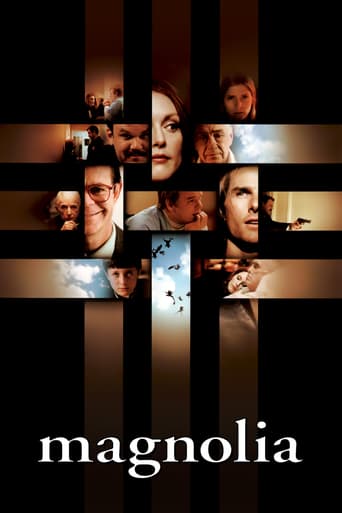
Reviews
It was OK. I don't see why everyone loves it so much. It wasn't very smart or deep or well-directed.
The film creates a perfect balance between action and depth of basic needs, in the midst of an infertile atmosphere.
It’s fine. It's literally the definition of a fine movie. You’ve seen it before, you know every beat and outcome before the characters even do. Only question is how much escapism you’re looking for.
An old-fashioned movie made with new-fashioned finesse.
After ten years of directing documentaries the Dardenne brothers directed their first fictional film, Falsch (1987). In 1992 they finished their second one, Je pense à vous (I Think About You) which they didn't think as a good film. After four years, came their first real "Dardenne-film" The Promise. It was the first film where they found their own unique style. The Promise is a story of a father son relationship, which they had already dealt with in Falsch.Roger (Olivier Gourmet), with his 15-year-old son Igor (Jérémie Renier), drives across industrial Belgium to get illegal immigrants from a truck. They bring them back to a block of flats they live in and start charging them for money. One of the immigrants is Assita who has come to Belgium with her husband to find a better future for them and their baby. One day when immigrant-inspectors pay a visit events start to have radical consequences.The films by the Dardenne brothers usually focus on the moral choices the characters have to make and what are the consequences. In The Promise Igor has to decide, whether to obey his father or to do what's right and help Assita. Then we get to the question what is the right thing to do? And this is what Luc & Jean-Pierre Dardenne want to do: let us observe and think. Luc Dardenne has said that the basic idea of film-making is to reconstruct new humane experiences. The Promise makes one think about these moral dilemmas and social issues but also associate the events with one's own life.Geographically Belgium is in between of Germany and France - Belgium is only a country for trespassing. For instance a harsh example; Hitler in WWII. This is the main theme of The Promise - it is a story of trespassing. For Assita Belgium is a metaphor of a certain state in life, which she is just passing by. No one stays in Belgium (or in that state of life).As is Assita in between of two worlds; her home country and Belgium, so is Igor. Igor feels himself grown-up when he's collecting taxes for his father and driving around Belgium. But on the other hand he's full of juvenile joy as he drives with his friends on a go-kart. Igor was played by Jérémie Renier (L 'Enfant, Lorna's Silence). It was his first role and through that he brought a realistic life to the character who tries to free himself from the chains of his father - the brothers have always appreciated the idea of using amateur actors. Igor's father, Roger was played by the Golden Palm-winner Olivier Gourmet, who is in my opinion a very talented actor. He gives a great life to Roger, whose world is worthless and merciless.The Dardenne brothers were raised in an industrial town in Belgium, which is the milieu in all of their films. The sound scape is something that one should pay attention to. There's no musical score at all only the voices the characters hear, the voices of an industrial town - ambiance. In the end the industrial voices just keep going on as the credits come on the screen. It's like we can't handle them anymore, they're spreading off the screen. A bit like in Chaplin's City Lights.The minimalist style of The Promise is amazing. It's touching on a new level. The brothers have totally succeed in their mission to create new humane experiences. Luc Dardenne writes in his 'diary' Behind Our Pictures, that the more you take material away the closer you get to the humane emotions, which he achieves through the severe aesthetics, minimalism and ruthless sound scape.Faces are in an important role, when describing humane emotions in The Promise the faces have also a dramaturgical role. I'm going to quote Luc Dardenne here, translated in English: "In every scene with Igor and Assita where they look to each other, Igor is always the first to turn his head away. Igor isn't able to meet Assita's eyes, because he senses a moral command that he cannot reply. Except in the final scene." And what a redemption it is in the end. The meaning of facial expressions and the philosophy behind it comes from a French philosopher Emmanuel Lévinas, who both of the brothers admire and from whom they get background for their philosophy of film.The Promise is thinking - philosophy of film. The brothers have stabilized film as an instrument for philosophy. I hope that the true film fanatics get to see this and appreciate it as much as I do. In addition to its themes of change, father-son relationship and trespassing, The Promise challenges the viewer to think on its own. The brothers force us to meet the moral choices out there.
Brothers Jean-Pierre and Luc Dardenne concern themselves with creating films that put realism on the screen without using artifice or cinematic trickery to distract the audience from the socially aware message at the core of their narratives. Unlike the similarly themed dogme movement, or the more iconic works of Lars von Trier etc, the Dardenne brothers are unconcerned with changing the face of cinematic reality, but rather, take their cue from people like Ken Loach, Bruno Dumont and Robert Bresson; by creating honest, often-bleak works of film that take their character from despair, to hope, and sometimes, right back to despair, in order to give the audience a taste of a world away from the more comfortable social milieu we might be accustomed to. The concept could be read as hypocritical admittedly, and although the occasional heavy-handed quality of the brother's work does intermittently become preachy, there is ample opportunity to deliver some moments of earth-shattering drama.I first encountered the Dardenne's work back in 2001, when British film channel Film Four premiered their film The Promise (1996) in preparation for the premier of their highly acclaimed follow up film Rosetta (1999). Both films are here are heavily indebted to the naturalistic/realist work of Bresson and Loach, particularly films like Diary of a Country Priest (1951), Riff Raff (1990) and Raining Stones (1993); with the filmmakers presenting the viewer with a series of characters continually forced to the brink of despair, but desperate to pull themselves back. For me, out of the two films of theirs that I have thus far seen, The Promise is the one that makes the greatest impact. Here, The Dardenne's create a world that isn't a million miles away from the current social climate in the UK, with building sites, smoky pubs and migrant workers peppering what is essentially the typical rites-of-passage/coming of age movie so familiar even by Hollywood standards. The brothers rest their narrative firmly on the shoulders of young newcomer Jérémie Rénier as Igor, a teenage tearaway forced into looking after a young black mother and her baby following the death of the woman's husband whilst working for the company run by Igor's father.The brothers season their film with an abundance of topical, moralistic issues such as the passage into adulthood, immigration and domestic abuse, but at the centre of the drama there is still room for hope in the touching father son relationship between Igor and his disparate dad (played here by award winning actor and regular Dardenne collaborator Olivier Gourmet). The Promise might not be a ground-breaking film; its ideas are well worn and its scenarios familiar from the classic kitchen-sink cinema of films like Saturday Night and Sunday Morning (1960) and A Taste of Honey (1961) to name only two, but the process of refinement that the brothers are able to create with the subtle shading of characters and the no-nonsense approach to film-making is really quite affecting on the most personal and emotional of levels.
I liked this film because it dared to be different. It was about as far from a "Hollywood-style" film as you can get! The story involves some pretty nasty characters. In particular, a teenage boy and his father. They make money by exploiting illegal immigrants in France--picking up the poor people and housing them in a tenement--all as exorbitant rates. This pair appear to be people without souls as they lie and cheat again and again. However, when one of these illegals accidentally dies, the paths of the two diverge. Dad just wants to dump the body and could care less about the man's widow and young child (wanting to sell her into a life of prostitution), while the boy who witnessed the final words of the dying man promised to look after the family. What, exactly, happened next I'll leave for the viewer. Provided you have a tolerance for movies about realistically seedy people, this is a film worth seeing.An interesting twist, not taken in the film, would have been if later the boy had found out that his father was not really his biological dad--but the "dad" raised him from infancy after his own real family died while being smuggled into France by him. This could be an interesting path.
I tend to think of any film in a foreign language as an 'artsy' movie, and avoid them like the plague. However, I had the good luck to catch "La Promesse" and I might have to change my thinking. The story is the kind that catches your interest quickly and never lets go. The film never adopts a high air...in fact, it's very gritty, which makes it that much more enjoyable. The characters are so believable you might think you're actually watching a documentary. To top it off, the morality play at the heart of the movie is done remarkably well. If you're in the mood for something different, see this movie.
